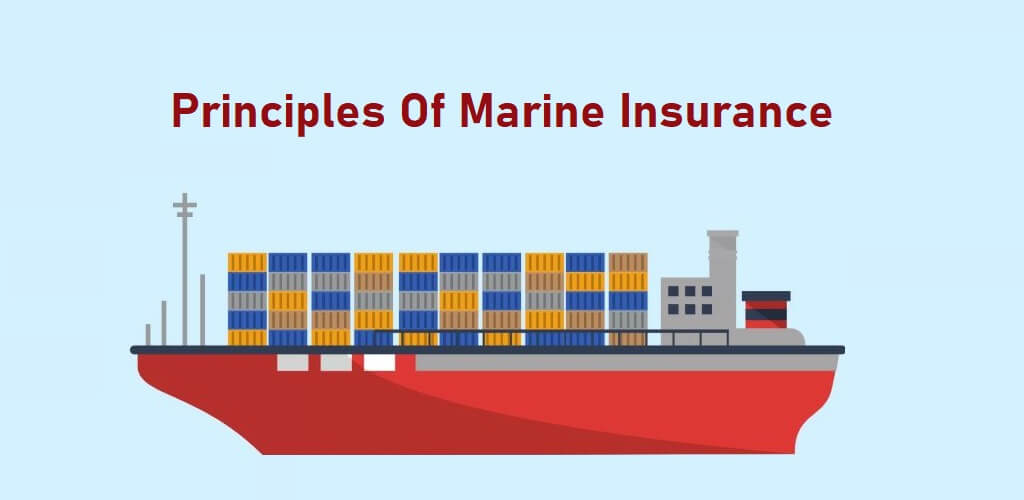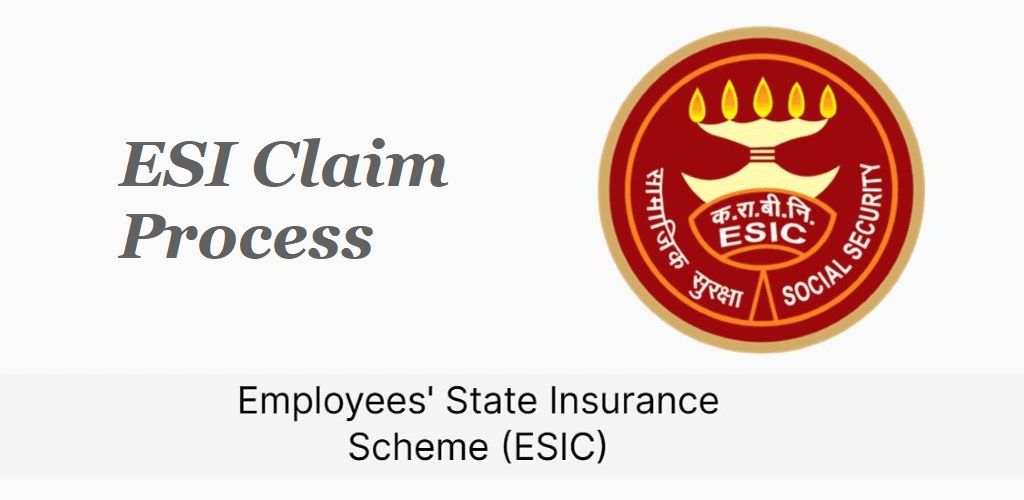Imagine you are sending a special package to a friend far away by sea. Along the way, the package might face issues like bad weather, accidents, or even loss. These challenges can be worse because goods travel long distances on ships and are exposed to harsh environmental conditions, such as heavy seas and saltwater exposure.
Here comes the importance of ‘marine insurance’!
Marine insurance safeguards businesses and individuals involved in sea transportation by covering risks like accidents or theft during transit. It acts as a crucial backup plan, ensuring they’re financially covered and their goods reach their destination safely, even if unexpected problems arise at sea.
In addition, remembering the principles of marine insurance is super important for handling risks in sea trade. It’s like the base for running businesses smoothly, especially because sticking to these rules is often required by international trade law agreements and contracts.
Join us in uncovering the top 6 principles that form the bedrock of marine insurance!
What Are The Important Principles Of Marine Insurance?
The basic principles of marine insurance in India follow global standards, highlighting the essential concepts to protect individuals involved in maritime trade. Although the details can differ among policies, the six major principles that one should never forget are as follows:
1. Principle Of Indemnity:
In marine insurance, the indemnity principle ensures that the insured person is compensated for actual financial losses due to damage or loss. The aim is to restore them to their pre-loss financial state without allowing extra profit from the insurance. That’s why the compensation is limited to the actual value or the policy amount, preventing excessive payouts and discouraging fraudulent claims.
Damage claims are settled by calculating the depreciation value, which is obtained by comparing damaged goods’ value with their original value on the sale date, by using the same date to avoid market price fluctuations. This method simplifies the payment process without directly replacing or restoring the cargo.
2. Principle Of Insurable Interest:
This is another important basic principle of marine insurance, under which individuals can only get insurance if the policyholders have a real stake in the goods or property being shipped (if they get damaged or lost). This can be the ownership of the goods, a financial investment, or a legal obligation tied to the safe arrival of the cargo.
For example, an XYZ company bringing in goods by sea can get insurance because their money depends on the goods arriving safely. Thus, the person getting insured should have a legal connection to the objects being shipped.
In business, when goods might be bought or sold during transit, having an insurable interest is crucial. Without insurable interest, the insurance might be void because the person buying it wouldn’t genuinely care about the well-being of what’s insured. Also note that the ‘Marine Insurance Act’ allows owners to claim losses for goods insured as “lost or not lost”, even if they didn’t own the goods when getting insurance but became owners later. But if they knew about the loss when getting insurance, they can’t claim.
3. Principle Of Good Faith:
The principle of good faith, also known as ‘uberrimae fidei’, means being totally honest and open between the person getting insurance and the insurance company. Both sides must act in good faith by giving complete, accurate, and truthful information about what’s being insured and what are the risks. This principle ensures transparency and trust in the marine insurance system, especially when today the maritime environment is so unpredictable.
Breaches of the ‘good faith’ principle in marine insurance come in four types: non-disclosure, concealment, innocent misrepresentation, and fraudulent misrepresentation. Non-disclosure and concealment are passive breaches, while innocent and fraudulent misrepresentation are active breaches. If the insured fails to disclose material facts, the insurer may have grounds to void the policy, denying coverage for the claim. Similarly, if the insurer acts in bad faith, it may face legal consequences, including potential liability for damages.
4. Principle Of Proximate Cause:
Another significant basic principle of marine insurance is the principle of proximate cause which identifies the main or direct reason for a loss or damage. It pinpoints the specific peril or event that initiated a series of events, resulting in the ultimate loss.
Suppose a ship faces rough seas due to a heavy storm, causing it to take on water and damage the cargo. In this case, the storm is likely deemed the proximate cause, even if there was a mechanical issue contributing to the damage. The storm initiated the chain of events leading to the loss.
Recognizing the proximate cause is crucial for both the insured and the insurer when figuring out coverage and liability. It’s important to note that the proximate cause isn’t always the one closest in time; rather, it’s the dominant, effective, and operative reason behind the loss.
5. Principle Of Subrogation:
The subrogation in the principles of marine insurance refers to the right of the insurer, after settling a claim, to pursue legal actions against third parties responsible for the loss. The principle is like a fairness rule in insurance, which means that if the insurance company pays the policyholders for a loss, they can’t make extra money from that loss. Instead, the rights and remedies for that loss shift to the insurer, who compensates the policyholders.
When the insurer pays for a total loss, they get ownership rights through abandonment. If the property is recovered, they keep all the proceeds, assuming full coverage and no risk to the insured. Additionally, if the loss results from the negligence of a third party, against whom the insured has a legal claim, then the insurer has the right to inherit any compensation that the insured may receive from such cases. This principle applies to both total and partial losses and is separate from abandonment. It ensures fairness by avoiding double benefits for the insured and allows the insurer to receive funds paid to the insured, thus, maintaining a balanced financial responsibility.
6. Principle Of Contribution:
Sometimes, a single risk can be insured by multiple insurance providers. In such situations, the principle of contribution states that each insurer is responsible for contributing a portion of the claim. Put simply, each insurer shares the responsibility of paying the claim according to the proportion of the coverage they offer.
This principle of marine insurance serves to prevent the insured from receiving excessive compensation. Without this principle, the insured could potentially recover more than the actual loss by making claims under each policy. By ensuring a fair and balanced distribution of the financial burden among insurers, the ‘contribution principle’ aligns with the core principle of indemnity.
Frequently Asked Questions
The principles of marine insurance are overseen by the General Insurance Council of India. In case you violate any of the principles, legal actions can be taken and the insurer has every right to take the matter to the court.
The ‘Marine Insurance Act’ was introduced in India in 1963, with the aim of regulating marine insurance activities. It clearly defines the obligations and rights of the parties involved, including insurers, insured members, and brokers.
Breaching any of the basic principles of marine insurance can have serious consequences, both legally and in terms of coverage. The specific repercussions will depend on the nature and extent of the breach. For example, not revealing crucial information or providing inaccurate representations may result in the nullification of the policy. Not only this, but a breach could also lead to increased premiums or more restrictive coverage terms in the future.
The principle of proximate cause is essential in determining whether a loss is covered under an insurance policy. It helps establish the main reason behind the loss and guides the resolution of claims.
Yes, the proximate cause is not necessarily the event closest in time but rather the one that is most efficient and dominant in causing the loss. It may not align with the chronological order of events.
Yes, the principles of marine insurance can vary between different jurisdictions, as they may be influenced by local laws and regulations governing insurance practices in each region.
Yes. The principle of indemnity smartly interacts with contribution and subrogation. While indemnity focuses on compensating the insured for actual losses, subrogation allows the insurer to recover funds from third parties, and contribution ensures a proportionate sharing of liability among multiple insurers.
Breaches in the ‘good faith principle’ of marine insurance can take various forms, including non-disclosure of material facts, falsifying documents, misrepresentation of information, hiding information, and engaging in double insurance without notifying, to name a few.
No. Subrogation does not directly affect the insured’s relationship with the third party. This is because all the rights to pursue legal actions against the third party are transferred to the insurer after subrogation.
No. The insured cannot claim the full amount from each insurer. The ‘principle of contribution’ prevents overcompensation by ensuring that the insured receives an ‘actual and shared’ amount from each insurer based on their coverage.








